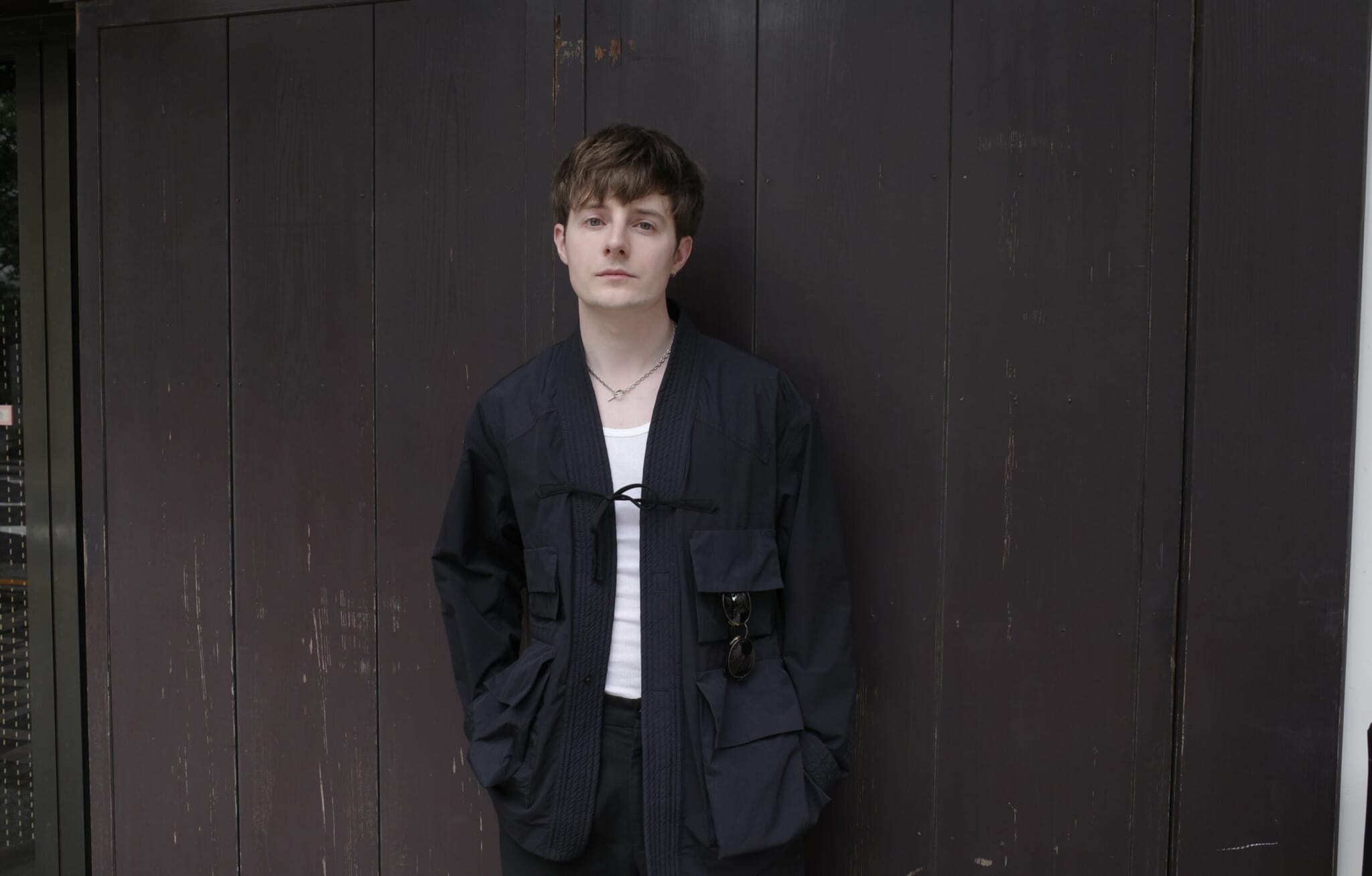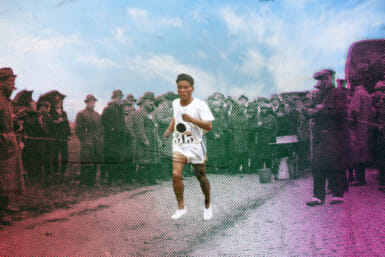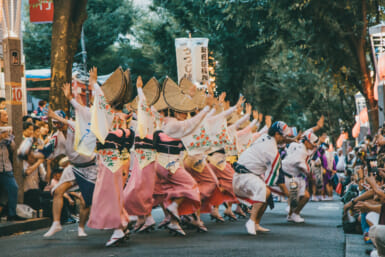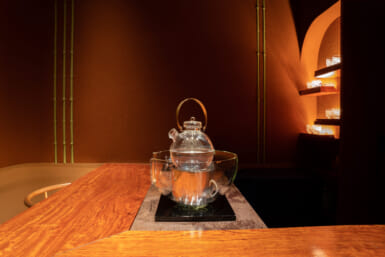Japan has seen its fair share of great English-language fashion writers over the last 20 years or so. Martin Webb, Misha Janette and Samuel Thomas have all played their own part in bringing Japanese fashion to the world. Grimsby-born Ashley Ogawa Clarke is the latest writer to take on the fashion mantle and his work with Vogue, GQ, WSJ and several other prestigious publications sees him firmly in the media spotlight. I didn’t know Ogawa Clarke until we met up at the popular Higashi-Nagasaki coffee shop Mia Mia in mid-June to talk about his life in fashion, his background and his thoughts on Tokyo. We got along famously and share a lot in common. Below is a mere snippet of the conversation that took place in the latest installment of our 8am Coffee series.
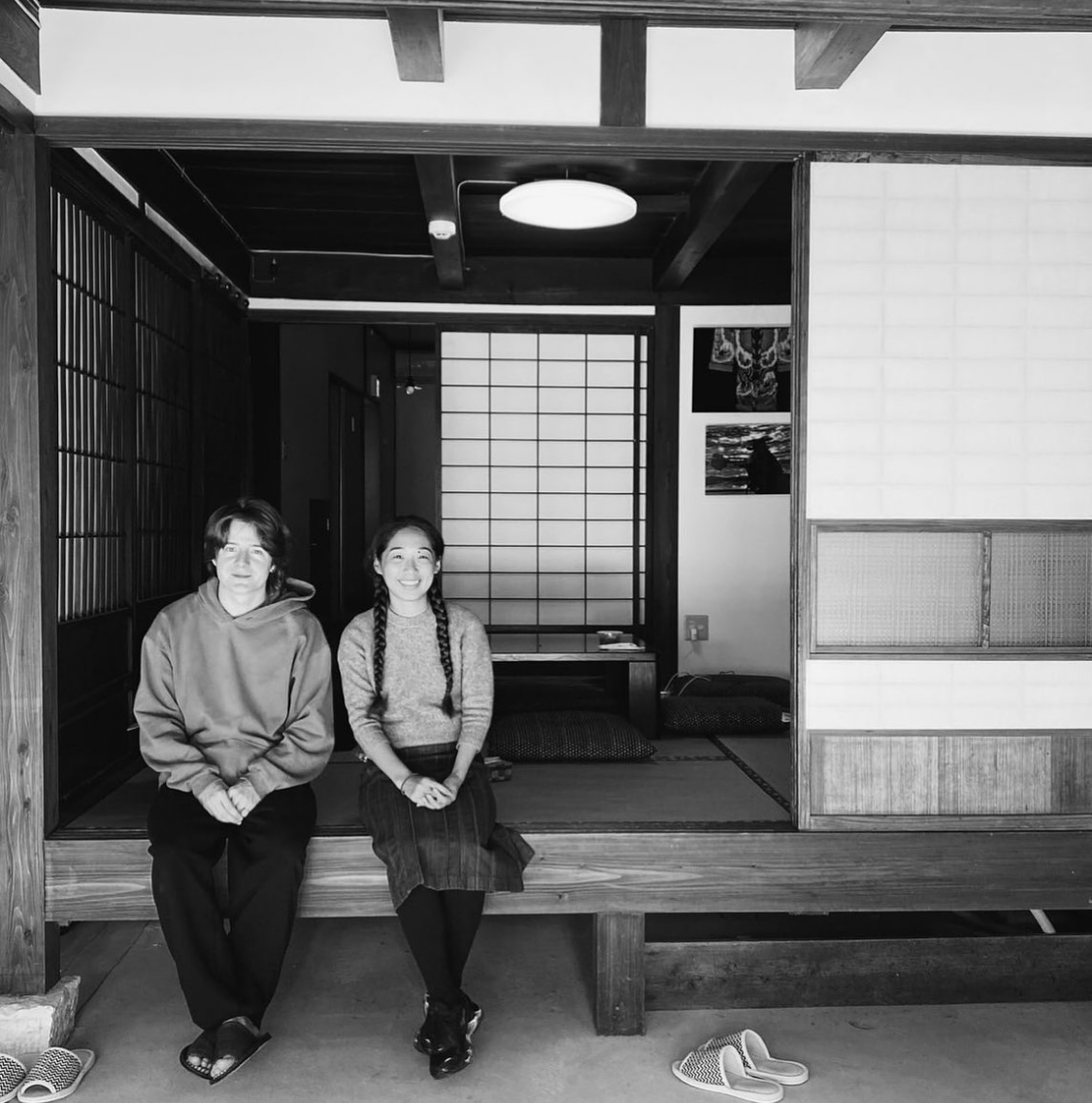
Ashley and his wife, stylist Reina Ogawa Clarke
What do you think about the rise of AI, Ashley? Do you think it will eventually replace journalists? I’m asking because I’m beginning to fret a little.
It’s convincing, right?
Yes
The problem is that writing doesn’t make much money. It’s a particularly difficult time to break into journalism. Most freelance journalists I know have to do copywriting or consulting on the side. And for things like that, I can see places adopting ChatGPT, and then having someone in-house edit it because it would just be quicker. The romantic writer in me believes that writing always needs the human touch. You’d like to think that publications would have enough respect for their readers to keep it like that, but the cynic in me thinks we’ll mostly be gone in five years.
How did you get started writing about fashion?
I was born in Grimsby but went to Goldsmiths [University] in London and did English there and thought I wanted to be a writer. My first proper job, that I got paid for, was when I did an internship at The Telegraph on the fashion desk.
I’d always wanted to live in Japan, probably because I did karate when I was young — that was my first experience of another culture. One of my editors at The Telegraph said that I should go [to Japan] now before I became too locked into a career in London. It was a big decision but I applied for the JET programme (The Japan Exchange and Teaching Programme). So, I did JET for two years and that was my way in.
For me, it was magic, amazing. I was in Tokyo and was placed in a private school in Musashisakai. I loved it. But I never wanted to really be an English teacher. And I missed fashion, so quite quickly I started reporting here for Dazed and i-D, writing about Japanese fashion, interviewing shop staff and stuff. I slowly caught the attention of a few people including Tiffany Godoy, who is now the head of editorial content at Vogue Japan.
I interviewed Tiffany years ago when she released her amazing book Style Deficit Disorder.
Yes, I think I knew her online and I had seen her at a few events. She wasn’t on staff at Vogue back then but she helped me out. I got the runner-up prize at the Vogue Talent Contest for Young Writers in 2016, and Tiffany messaged me one day and asked if I would like to write the Tokyo reviews for Vogue Runway. So, I showed up at Tokyo Fashion Week. I was about 24, knew no one, just had my notebook and my newly bought backpack from Issey Miyake. Nobody had any idea who on earth I was, but by the end of the season they were calling me vogue-dot-com-san.
Sounds amazing. What happened after JET?
I moved back to London after JET. I didn’t want to be an English teacher and didn’t know how to make freelance work here and was still so young. In a roundabout way, when I returned to Japan later last year, I started covering fashion week here again for Vogue Runway. It’s so rewarding interviewing designers here because you get such a rare insight. There’s a whole untapped and underestimated world of fashion here that just isn’t covered. Especially the grassroots of Japanese fashion. So, the biggest joy of my job here is finding and talking to younger designers who haven’t had their stories told in English.

You worked at the famous global retail site, Mr. Porter, didn’t you?
Yes, when I got back to London after JET, I asked my editor at i-D if he knew of any fashion writing jobs going and he told me Mr. Porter was hiring. So, I managed to get a job there as a staff writer, got promoted to deputy editor and worked there for five years. And that was a good way into menswear, and to see a different side of the industry. What they were doing there was maybe even more exciting than traditional menswear magazines.
Finally, what are your plans for the rest of this year, Ashley?
A lot of my work is still abroad at the moment, so I’d like to dig more into Japan with my writing. And do more reporting on Japan’s retail landscape and designers here. I’d like to be a bit more present in Tokyo, and to settle in here again. I still study Japanese — I feel like I have to. My goal right now is to be able to read the news a bit better. And to be able to research more in Japanese.

